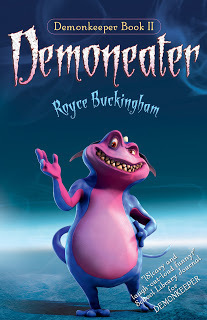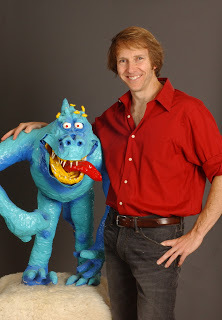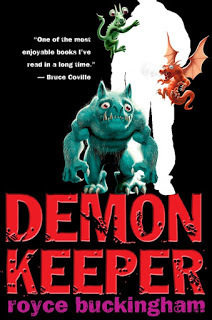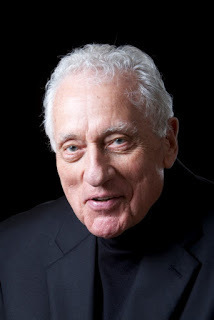Kenneth Atchity's Blog, page 230
August 24, 2012
Story Merchant Client Terry Stanfill's Realms Of Gold Kirkus Review


REALMS OF GOLD
(reviewed on September 15, 2012)
Stanfill’s (The Blood Remembers, 2001) novel follows an unlikely pair of lovers as they piece together an ancient puzzle that will shed light on an age-old mystery.
In
1953, an archaeological team working in Vix, a small town in the
Burgundy region of France, found the 2,500-year-old tomb of a woman some
claim to have been a Celtic princess. The burial site, surprisingly
well preserved, housed both the woman’s body and a treasure of
immeasurable value that included a perfectly intact krater (a
ritual wine vessel) likely cast in Southern Italy. While the
groundbreaking find revealed much, it left many questions unanswered:
Who was this mysterious woman? Why was she entombed with such treasure?
And what was the origin of the foreign urn? These questions—which still
vex experts today—drive Stanfill’s scintillating tale of intellectual
discovery and budding romance. In contemporary Venice, Bianca Evans
Caldwell—an American author—crosses paths with archaeologist Giovanni de
Serlo at a wedding and immediately falls for the suave, confident
Italian. But neither suspect that this chance meeting would send them
both on a continent-spanning adventure that will help solve the
mysteries of the Vix krater and the sleeping princess,
all while delivering surprising new insights into the mythology of
England and France. Stanfill’s narrative initially feels ornate, but it
morphs into a lively, precise plot. The author pours her estimable
learning into this, her fourth novel, and she’s equally comfortable
writing about the nuances of ancient art, the links between myth and
history, and the nooks and crannies of modern-day Italy. And though her
book seems by turns a travel guide or an archaeology textbook, its
details only add verisimilitude to a satisfyingly complex story of love,
learning and intrigue in Europe.
An erudite thriller that recalls Brown’s Robert Langdon series—only smarter.

Published on August 24, 2012 00:00
August 22, 2012
AEI Client Royce Buckingham Interview On A Thousand Wrongs!

DEMONEATER (THE DEMONKEEPER SERIES)
Royce Buckingham
Story Merchant Books
172 pp.
middle grade e-book
Seattle’s demons are scared and wreaking
havoc in the rainy city. They’ve burned their way through the Seattle
underground, threatened to topple the Space Needle, and sent a twenty
foot statue rampaging downtown.
It’s up to Nathaniel Grimlock, the teenage Demonkeeper, to control
them, but when he discovers what’s stirring them up—a legendary monster
known as the Demoneater—he finds that he’s in over his head yet again!
This cute series is perfect for kids of
all ages. Author Royce Buckingham visits with us today to share a little
about how it came to be. Be sure to enter the giveaway for the first
book in the series below!
1. Tell us about the Demonkeeper series in one sentence.
A
teenage boy in Seattle manages a houseful of wacky and dangerous demons
to make sure they don't escape and wreak havoc on the world.
2. What inspired you to write these stories?
Demon Keeper began as a short story I wrote inspired by a kid I prosecuted regularly in juvenile court. He had a green Mohawk, and I’d see him downtown begging change. He was thirteen. Then one day he disappeared. I don’t know what happened to him, but he was living on the streets, so nobody seemed to care. I imagined the chaos of those streets as a monster that simply rose and ate him up, as it does with so many kids. Demon Keeper is more lighthearted than that short story I wrote years ago, but its message remains the same. Kids
need stability, family, and a home where they can learn to swim through
the chaos of this crazy world before they are thrown into it.

3. What books did you read when you were young and how have they influenced your writing?
I
was fascinated by fantastic tales such as 20,000 Leagues Under the Sea,
The Phantom Tollbooth and The Mouse and the Motorcycle. As I grew
older, I moved on to The Hobbit, Conan the Barbarian and anything
Stephen King. I collected comic books too. Movies
were a big event in my small town. I saw Jaws at the theater the day it
opened in 1975. I was nine years old. I stood in the sold-out line
again in 1977 for Star Wars when I was eleven, and again for Alien when I
was thirteen. Around twelve, I discovered the fantasy role-playing game
Dungeons & Dragons and began to create my own fantasy worlds.
4. Share a little about your road to publication.
When I started working at the Prosecuting Attorney’s office in Bellingham, WA in 1993, I sat down and wrote a novel. It took a year, and I couldn’t sell it. I
was discouraged, but I put it in the drawer and kept writing. During
this time I handled everything from gum theft to murder at the
Prosecutor’s office.
Then Demonkeeper happened.
Demonkeeper was a screenplay I wrote about juvenile delinquents getting eaten by monsters. It began to win competitions, and, by 1999, I was writing books and scripts and sending my work to L.A.. For the next five years, I wrote hard and tried to sell something.
But as excited as I got about my amateur success, I couldn’t quite break in. In the meantime, I had two boys and my wife was working full-time. I had to write at night, typically until two a.m., unless I was preparing for jury trials.

This…was a problem.
As
good as the signs were for my writing, the fact was: I wasn’t breaking
through, I wasn’t making any money at it, and I’d been doing it over ten
years. It was tough to justify the commitment.
In 2004, with all of my other obligations weighing on me, I resolved to quit writing seriously. That same week, Microsoft e-mailed me. They wanted to hire a screenwriter to create an original story for an Xbox video game. I was floored. This was not what I had planned, but it was an opportunity to write a fantasy story for a real audience for real money. My amazing wife took one look at my secure, well-paying government job and told me…“go for it.” Completely contrary to everything I’d ever been taught, I quit my attorney job and “went for it.” A
few months later, Microsoft cancelled the project, and I came crawling
back to the prosecutor’s office to beg for my day job back.
This time I felt I was truly done with writing. I shut off the computer and returned to my stabbings and shootings. At least, I thought, I’d given my dream of being a writer a shot. On my deathbed, I could say that I tried.
Then one day a Hollywood producer called me. He’d read my Demonkeeper script. He loved it. I mentioned that I had also written it into a novel. The response was surprise and delight. In late 2005, they took Demonkeeper to Penguin Publishers, and they bought it.
Shortly thereafter, 20th Century Fox called. They wanted to read the novel. They made a mid-six-figure offer the next day.
I spent a week pinching myself each morning to make sure I wasn’t dreaming. After thirteen years of writing, I had suddenly sold a novel and a screenplay almost simultaneously. And that hasn’t been the end of it. Demonkeeper is now in ten countries and a bestseller in Germany. I am currently writing my eighth book.

5. What is your writing schedule like?
I
work 32 hours a week as a lawyer and have two boys, 11 and 8. My wife
also works. Thus, I write in the morning for one half hour, at lunch for
an hour, at night for an hour, a full day Friday, and as much as
possible on weekends.
6. What can we expect from you in the future?
A
lot! THE DEAD BOYS is out right now alongside the DEMONKEEPER series.
It is a Junior Library Guild selection and on several reading lists.
I
have two books coming with Saint Martin’s Press. One is a YA about
terminally ill teens that are recruited for dangerous spy missions so
that they can die jumping out of planes and fighting bad guys instead of
lying in hospital beds—very cool story called THE TERMINALS (2013).
I
also have a two book deal with Random House in Germany. I just
completed MAPPER 1 for them, which is a 500 page medieval fantasy about a
boy who, when he draws on an ancient map, makes new lands appear.
MAPPER 1 will be offered to U.S. publishers soon, and I’m writing MAPPER
2 for R.H. now. It’s a very exciting time.

Published on August 22, 2012 00:00
August 20, 2012
How Amazon Saved My Life - Indie Reader [via Terry Stanfill]

by Jessica Park
....
Amazon is the true powerhouse right now. Say what you want about this company, but it’s because of them that I can continue writing. It’s unclear to me how a big publisher thinks that I could live on their typical payouts, and why they think I should drop to my knees in gratitude for their deigning to even publish my book in the first place when I’ll do all the work myself. I’m not going to be grateful for that nonsense, but I am going to be grateful as hell to Amazon.
Bestselling trad-to-indie-author Barry Eisler, famous for turning down a six figure deal from St. Martins Press to go out on his own, took a lot of heat for having compared an author’s relationship with a big publisher to Stockholm syndrome. The truth is that it’s not a bad comparison at all. Snarky, funny, and exaggerated, perhaps, but there is more than one grain of truth there, and I just know that authors across the country were nodding so violently that we had collective whiplash. When writing for a publisher, you learn to be overly thankful for every pathetic little grain of positivity that comes your way. A disgustingly awful cover? Smile broadly and say how gorgeous it is. Contracts arrive months after arranged? Whip out your pen and sign with no complaints. You’re eating Ramen noodles while they are taking all of December and January off and while they essentially shutdown during the summer to vacation on the Cape? Slurp your soup and be happy.
Because of Amazon and other sites, I’m making enough money that I can continue writing. I’m averaging sales of 3,500 books a month, not including the month that Amazon featured Flat-Out Love in a list of books for $3.99 and under. That month I sold 45,000 Kindle copies, and sold over 10,000 the next month. Those numbers are insane to me. Absolutely insane. The fact that I continue to sell well a year after the book’s release is humbling. Yes, I wrote a book that has earned me excellent reviews, so I take credit for that, and I worked myself to death finding bloggers to review my book (God bless my loyal bloggers who took a chance on me!), but I have to credit Amazon with giving me such a strong platform with such overwhelming visibility. I can be a writer. I am a writer.
And it’s not just me. Self-published authors, many of whom are writing about college-age characters, are finding viable careers. Abbi Glines, Tammara Webber, Jamie McGuire, Tina Reber, AK Alexander, Angie Stanton, Stephanie Campbell, Colleen Hoover, Liz Reinhardt, and plenty more. I’m seeing more and more traditionally published authors walking away from the headaches and turning to self-publishing. It can be tricky to leave because very often an author needs the advance money in order to survive, and then gets stuck contracted for books that quite likely won’t earn out that advance or won’t ever provide much in terms of royalty checks. When authors break the cycle, get the hell out, and flourish on their own, it’s a wonderful thing.
Read Entire Article Here

Published on August 20, 2012 00:00
August 17, 2012
Blogcritic Reviews The Messiah Matrix!

Kenneth John Atchity, Ph.D. is brilliant. His new novel, The Messiah Matrix, is a compelling story that may challenge readers to view religion differently. Ken Atchity, a Classical scholar, accomplished author and Hollywood producer, does not disappoint his readers. The Messiah Matrix is a creative, thought-provoking, action-packed, historically laced, and masterfully detailed page-turner. (Watch out for paper cuts!--You'll be turning the pages quickly. It's that good!)
Searching for truth and the origin of Christianity, The Messiah Matrix draws the reader into a world of corruption, murder, romance, and rich history, set in beautiful Italy. Relying on extensive research, this story explores a controversial idea: The story of Jesus Christ may be different from the original story explained by the Bible and other sources.
Within the first two pages, I was hooked. The murder of the monsignor, the confession of one stranger, the diving expedition that uncovered a hidden and valuable artifact--every event spun part of the mystery into a web that wasn't easy to unravel and exercised my brain muscles; it’s a cerebral experience, not just great entertainment. The writing transports the reader into a fictional drama with international flavor, and artfully educates.
Father Ryan, a young Jesuit priest, is obsessed with finding out why the monsignor was murdered and battles personal doubts about his own religious faith, questioning the troubling inconsistencies in Catholic doctrine. Fate brings him together with Emily, a beautiful and vivacious archaeologist who is also linked to the deceased monsignor. She too is searching for the truth behind the story of Jesus and wants to present her findings when the time is right.
The sexual energy grows between the characters of Ryan and Emily and while fighting his attraction for Emily, the reader senses Father Ryan's torment and confusion. All the while, the reader is immersed in Roman history and the ancient story of Augustus, sometimes told in a flash back style, through Emily's character sharing stories told to her by the late Monsignor.
The two travel together and slowly connect the unconnected to explain the origin of Jesus. Their revelations are not welcomed by the Catholic Church in Rome and put them in great danger. After a daring escape from the caves of Cumae, they are able to reveal the truth about the true “Christian Savior” and the reader may be surprised by the story's ending.
The author includes a table at the back of the book that gives a clear comparison between his researched facts and the events of Jesus’ life highlighted in the Bible. Atchity does not preach or push his views on the reader. He factually establishes documented and historically reliable information that gives the reader freedom to decide for himself what he believes to be true.
Only Ken Atchity, who has expert knowledge of Christian history and classical training, can pull off scholarly work that reads like a fascinating, dramatic adventure, meant for the silver screen. People may also make comparisons between The Messiah Matrix and The Da Vinci Code, but I believe The Messiah Matrix is a far better read and in my opinion, the issues dealt with in Atchity's book have greater significance.
It is a controversial subject and some Catholics may be startled or surprised by what the author’s research revealed. I know I was. Brought up by strict Catholic parents and taught by the Jesuits at Boston College, I am a traditional believer; Yet during the reading of The Messiah Matrix, I had moments of doubt: "Could it be that what I had learned as a child wasn't true?" Atchity's fact-finding is that compelling!
At times, the book made me scratch my head in confusion and at other parts, curiosity kept me turning the pages. The Messiah Matrix is for anyone who loves thrillers, romance, and intrigue, and this writer highly recommends it.

Published on August 17, 2012 00:00
August 15, 2012
Did the Biblical Jesus Exist - Conclusions by Kenneth John Atchity
Published on August 15, 2012 00:00
August 13, 2012
TESTIMONIAL FROM STORY MERCHANT BOOK AUTHOR MILT LYLES Whose The Cruelest Lie and The Candle Seller just appeared as ebooks!
I just finished reading every word, every line, every chapter of THE CANDLE SELLER as an ebook. I am eternally grateful to the two of you.
It, the presentation, organization, and imagination, of CANDLE SELLER as you two put it together is a thing of beauty.
The success or failure of such an enterprise artistically or monitarily is tenuious at best, but no critic. sales list, or lack of success by the most modicum of standards can diminish the pride and total joyI experienced as I read CANDLE SELLER.
Writing as you have so often said, Ken, is not about money or fame. Those two villains masquerade as admirable benefits, They are good for the ego and check book, but holding a book, in this case an ebook, in your hands and knowing it is as good and true as you can write and is being presented in a format that fully expresses those qualities is the essence of writing. It is the why, the wonder, and the wherefore.
As I said, I am in debt to the talents and faith of the two of you.
Milt Lyles

The Candle Seller
by Milton E. Lyles


The Cruelest Lie
by Milton E. Lyles


Published on August 13, 2012 00:00
August 11, 2012
Clint Hill Discusses Mrs. Kennedy And Me on CBC Radio
Published on August 11, 2012 08:10
August 10, 2012
Story Merchant Client Elaine Edelson's Aries Fire Amazon Kindle #1 Best Seller Historical Fiction
"'Aries Fire' is filled with twists and turns and develops into a love
story with an unexpected ending. Edelson creates a main character
that the reader learns to love. I certainly will be looking forward
to reading Edelson's next creation."
--Brittany Murphy BookNookClub.blogspot.com
Amazon Best Seller Rank:
#1 Historical Fiction
#24 Overall Free in Kindle Store



Published on August 10, 2012 00:00
August 8, 2012
The Messiah Matrix: A Conversation
Freethought Nation
presented by Acharya S and TruthBeKnown.com, online since 1995
Here's an interesting document sent to me by the author, Dr. Kenneth Atchity, who is a former professor and current TV/film producer. He emailed me with the doc, asking me to post it on my website, so here it is. We had no previous communication, so whatever he's done here is entirely his own creation. The document gives the impression that I'm writing a book called Mythicism - a great idea that FTL and I have discussed but that is not in the works.
Atchity is promoting his own fiction book on the subject, The Messiah Matrix, and it sounds like he's got a good grasp of the subject matter, although I have not investigated the argument that Caesar Augustus was "largely responsible" for creating Christianity. Certainly, some of what was said about Augustus was used in the creation of the Christ character, but the Roman emperor (63 BCE-14 AD/CE) is obviously too early to have any other role in Christianity's creation than, perhaps, pushing for a religion that would unify the faiths of the Roman Empire, including merging Judaism with all the Pagan religions and mythologies.
Here is what the email I received says about the Augustus issue - the book that inspired this theme sounds interesting:
Quote:
Dr. Atchity was largely inspired by a book first published in 1899 titled The Worship of Augustus Caesar by Alexander Del Mar (1836–1926), a rigorous historian, an American political economist, a numismatist, an author, as well as the first director of the Bureau of Statistics at the U.S. Treasury Department from 1866–69. His non-fiction work contains a rich history of mythological gods and points a blatant finger at Augustus Caesar as being the preeminent 'Christian savior.' One particular aspect that Dr. Atchity found fascinating concerns the Pontifical College and their tampering with the calendar in the Middle Ages to artificially push back the date of Augustus’ apotheosis by 15 years. In other words, if this calendar change had not been instituted the date for Augustus’ apotheosis would have been 1 A.D.--the most widely accepted date of Jesus' birth. Today, the ‘accepted’ date of Augustus' apotheosis is 15 B.C.E. This is one of many historical elements that Del Mar presents that are imbedded in The Messiah Matrix.
Note that the bulk of the attributes in the lists from my book that Atchity includes here can be verified through ancient texts and artifacts - something I've been doing on this forum and in my blogs, articles and books since Christ Con was first published in 1999 (and before). I will be providing the documentation in depth in my revision of Christ Con, which hopefully will be out in 2013. Some of these attributes need to be tweaked for accuracy, such as: "His disciples purportedly bestowed upon him the title 'Jezeus,' or 'Jeseus,' meaning 'pure essence.'" In my revision, I have changed this saying to "Jai Shri Krishna," which is the closest I could find to a shout that resembles "Jesus Christ," discussing the subject in a footnote. A few other attributes may need to be removed altogether. Suffice it to say that the lists are accurate enough to make the point.
Also, the notes in brackets in the quoted text below are Atchity's. I don't subscribe to such dates for Zoroaster as 6000 BCE, for example. The ideas circulating in the name of this mythical Persian composite may have been in existence that far back, but the Persian language itself did not exist at that time, so there was no "historical" personage by that name at that time. Again, the rest of the dates are likewise not mine, and I don't concur with the bulk of them. Horus/Osiris seems about right, but Krishna and Buddha are too early, and Mithra is too late, and so on. And, again, these are not real people so these dates would not constitute their "birthdays" or any other such milestone. Putting these dates aside, it is sufficient to assert that these ideas are pre-Christian.
Having said all that, I certainly appreciate Dr. Atchity's effort and his close attention to my work.
For the record because some people continue to approach me as if it is a novel idea, I've been wanting to make a "Christ Conspiracy" film since I began doing this work in the early 1990s, long before my CC book was actually written and so called.

Published on August 08, 2012 00:00
August 7, 2012
Buzz in Italian press about Clint's 50th anniversary visit to Ravello
IL LIBRO
Io e Jackie Kennedy
in vacanza in Costiera
In un volume la testimonianza di Clint Hill, capo della sicurezza della famiglia del presidente americano
di ALESSANDRO VACCARO

Insuperata icona di stile alla Casa Bianca e nel mondo.
Ma anche protagonista indiscussa di un’estate in Costiera amalfitana.
Era il 1962 quando Jacqueline Kennedy decise di trascorrere le vacanze a
Ravello. Scene di gossip e mondanità, fiumi di inchiostro sulle pagine
dei giornali, ricordi di un mito che verranno riportati alla luce
proprio nella città della musica, grazie a una mostra di fotografie
inedite e alla proiezione di un video dell’epoca. L’evento, a cura di
Franco Nuschese, è in programma martedì dalle 20.45 sulla terrazza
dell’hotel Villa Fraulo, in via San Giovanni del Toro (info 089 858
283).
Insueprata icona di stile alla Casa Bianca e nel mondo.
Protagonista di un'estate in Costiera. Era il 1962 quando Jackeline
Kennedy decise di trascorrere le vacanze a Ravello. Gossip e mondanità.
Giornali scatenati, ricordi di un mito che ora verranno riportati alla
luce con una mostra di foto inedite e con la proiezione di un video.
Tutto in programma marted' alle 20,45 all'hotel Villa Fraulo.
Alla
serata parteciperà come ospite d’eccezione Clint Hill, all’epoca
agente dei servizi segreti incaricato della protezione dell’ex first
lady, per presentare il libro "Mrs. Kennedy and Me" (edizioni Gallery -
Simon and Schuster).
Le immagini in esposizione raccontano
quelle tre settimane di cinquant’anni fa, dall’8 al 31 agosto, che
videro una presenza travolgente in costiera, tanto da sconvolgere la
quiete di turisti e residenti. Jackie
soggiornò nell’antico Palazzo Episcopio a Ravello con i figlioletti
John John e Caroline, la sorella, il cognato e un seguito composto da
bambinaia, segretaria e due poliziotti, tra cui Hill. Di giorno si
recava al mare a Conca dei Marini, ospite della famiglia D’Urso che era
legata a Gianni Agnelli da un’amicizia di lunga data. Fu in quella
circostanza che avvenne il primo di una serie di incontri tra
l’Avvocato e la moglie del presidente degli Stati Uniti.
La
notizia fece subito il giro del mondo. La stampa americana ci ricamò
sopra una love story da film, ma la conferma ufficiale del flirt
sarebbe arrivata solo nel 2011 con la pubblicazione di una vecchia
intervista rilasciata da Jackie e rimasta inedita fino a quel momento.
Ad
arricchire il sapore della dolce vita della Kennedy sono anche gli
scatti che la ritraggono seduta al tavolo del bar San Domingo a Ravello
o a bordo del mitico "Veliero blu", ormeggiato alle banchine del porto
di Amalfi. E poi, il giro in barca fino a Punta Campanella e Sorrento,
il bagno a Li Galli di Positano, il ballo a piedi nudi nel club
"L’Africana" di Praiano e i mini-tour su una Fiat 600 decappottabile.
"Abbiamo ritrovato quell’auto e anche l’autista dell’epoca, che saranno
protagonisti della serata di martedì", annuncia Nuschese, proprietario
del famoso "Café Milano" a Washington.
"La mia vita è sempre
stata intrecciata alla storia dei Kennedy. Sono nato a Minori, ma avevo
solo un anno quando Jacqueline trascorse le sue vacanze in costiera.
Nel 1977 ho lasciato l’Italia per lavorare prima a Londra, poi a Las
Vegas. Infine a Washington, nel ’92, ho aperto il mio locale,
frequentato da vari personaggi politici. Così ho conosciuto John John e
altri componenti della sua famiglia".
Risale a pochi mesi fa
l’incontro di Nuschese con l’ottantenne Clint Hill, l’agente che provò a
salvare la vita di Kennedy nell’attentato di Dallas. "Quando ha saputo
le mie origini – prosegue il curatore della mostra – mi ha rivelato
che, di tutti i posti visitati assieme alla first lady, Ravello e la
costiera amalfitana hanno lasciato in lui i ricordi più preziosi".
Quegli aneddoti sono raccolti nel libro che Hill presenterà con la
co-autrice Lisa McCubbin. Tra le varie curiosità spiccano quelle sul
rapporto della signora Kennedy con i paparazzi, lo shopping assieme
alla principessa Irene Galitzine, la controversa lezione di sci nautico
alla piccola Caroline. Quando lasciò Ravello, Jackie disse a tutti che
sarebbe tornata con il marito. Non poté mai mantenere quella promessa:
l’anno dopo il presidente fu ucciso.
http://www.costieramalfitana.com/articoli/18-07-2012/ravello_ricorda_jackie_kennedy_segreta.aspx
http://www.dentrolanotizia.tv/index.php?option=com_content&view=article&id=3098:jackie-kennedy-segreta-nel-racconto-dellagente-incaricato-della-sua-protezione&catid=27:notizie-provincia-salerno
http://www.cavareporter.it/articolo.aspx?idarticolo=467

Io e Jackie Kennedy
in vacanza in Costiera
In un volume la testimonianza di Clint Hill, capo della sicurezza della famiglia del presidente americano
di ALESSANDRO VACCARO

Insuperata icona di stile alla Casa Bianca e nel mondo.
Ma anche protagonista indiscussa di un’estate in Costiera amalfitana.
Era il 1962 quando Jacqueline Kennedy decise di trascorrere le vacanze a
Ravello. Scene di gossip e mondanità, fiumi di inchiostro sulle pagine
dei giornali, ricordi di un mito che verranno riportati alla luce
proprio nella città della musica, grazie a una mostra di fotografie
inedite e alla proiezione di un video dell’epoca. L’evento, a cura di
Franco Nuschese, è in programma martedì dalle 20.45 sulla terrazza
dell’hotel Villa Fraulo, in via San Giovanni del Toro (info 089 858
283).
Insueprata icona di stile alla Casa Bianca e nel mondo.
Protagonista di un'estate in Costiera. Era il 1962 quando Jackeline
Kennedy decise di trascorrere le vacanze a Ravello. Gossip e mondanità.
Giornali scatenati, ricordi di un mito che ora verranno riportati alla
luce con una mostra di foto inedite e con la proiezione di un video.
Tutto in programma marted' alle 20,45 all'hotel Villa Fraulo.
Alla
serata parteciperà come ospite d’eccezione Clint Hill, all’epoca
agente dei servizi segreti incaricato della protezione dell’ex first
lady, per presentare il libro "Mrs. Kennedy and Me" (edizioni Gallery -
Simon and Schuster).
Le immagini in esposizione raccontano
quelle tre settimane di cinquant’anni fa, dall’8 al 31 agosto, che
videro una presenza travolgente in costiera, tanto da sconvolgere la
quiete di turisti e residenti. Jackie
soggiornò nell’antico Palazzo Episcopio a Ravello con i figlioletti
John John e Caroline, la sorella, il cognato e un seguito composto da
bambinaia, segretaria e due poliziotti, tra cui Hill. Di giorno si
recava al mare a Conca dei Marini, ospite della famiglia D’Urso che era
legata a Gianni Agnelli da un’amicizia di lunga data. Fu in quella
circostanza che avvenne il primo di una serie di incontri tra
l’Avvocato e la moglie del presidente degli Stati Uniti.
La
notizia fece subito il giro del mondo. La stampa americana ci ricamò
sopra una love story da film, ma la conferma ufficiale del flirt
sarebbe arrivata solo nel 2011 con la pubblicazione di una vecchia
intervista rilasciata da Jackie e rimasta inedita fino a quel momento.
Ad
arricchire il sapore della dolce vita della Kennedy sono anche gli
scatti che la ritraggono seduta al tavolo del bar San Domingo a Ravello
o a bordo del mitico "Veliero blu", ormeggiato alle banchine del porto
di Amalfi. E poi, il giro in barca fino a Punta Campanella e Sorrento,
il bagno a Li Galli di Positano, il ballo a piedi nudi nel club
"L’Africana" di Praiano e i mini-tour su una Fiat 600 decappottabile.
"Abbiamo ritrovato quell’auto e anche l’autista dell’epoca, che saranno
protagonisti della serata di martedì", annuncia Nuschese, proprietario
del famoso "Café Milano" a Washington.
"La mia vita è sempre
stata intrecciata alla storia dei Kennedy. Sono nato a Minori, ma avevo
solo un anno quando Jacqueline trascorse le sue vacanze in costiera.
Nel 1977 ho lasciato l’Italia per lavorare prima a Londra, poi a Las
Vegas. Infine a Washington, nel ’92, ho aperto il mio locale,
frequentato da vari personaggi politici. Così ho conosciuto John John e
altri componenti della sua famiglia".
Risale a pochi mesi fa
l’incontro di Nuschese con l’ottantenne Clint Hill, l’agente che provò a
salvare la vita di Kennedy nell’attentato di Dallas. "Quando ha saputo
le mie origini – prosegue il curatore della mostra – mi ha rivelato
che, di tutti i posti visitati assieme alla first lady, Ravello e la
costiera amalfitana hanno lasciato in lui i ricordi più preziosi".
Quegli aneddoti sono raccolti nel libro che Hill presenterà con la
co-autrice Lisa McCubbin. Tra le varie curiosità spiccano quelle sul
rapporto della signora Kennedy con i paparazzi, lo shopping assieme
alla principessa Irene Galitzine, la controversa lezione di sci nautico
alla piccola Caroline. Quando lasciò Ravello, Jackie disse a tutti che
sarebbe tornata con il marito. Non poté mai mantenere quella promessa:
l’anno dopo il presidente fu ucciso.
http://www.costieramalfitana.com/articoli/18-07-2012/ravello_ricorda_jackie_kennedy_segreta.aspx
http://www.dentrolanotizia.tv/index.php?option=com_content&view=article&id=3098:jackie-kennedy-segreta-nel-racconto-dellagente-incaricato-della-sua-protezione&catid=27:notizie-provincia-salerno
http://www.cavareporter.it/articolo.aspx?idarticolo=467

Published on August 07, 2012 00:00






